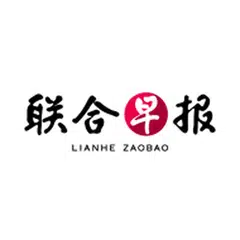Guinea coup: Why did non-interventionist China speak up?
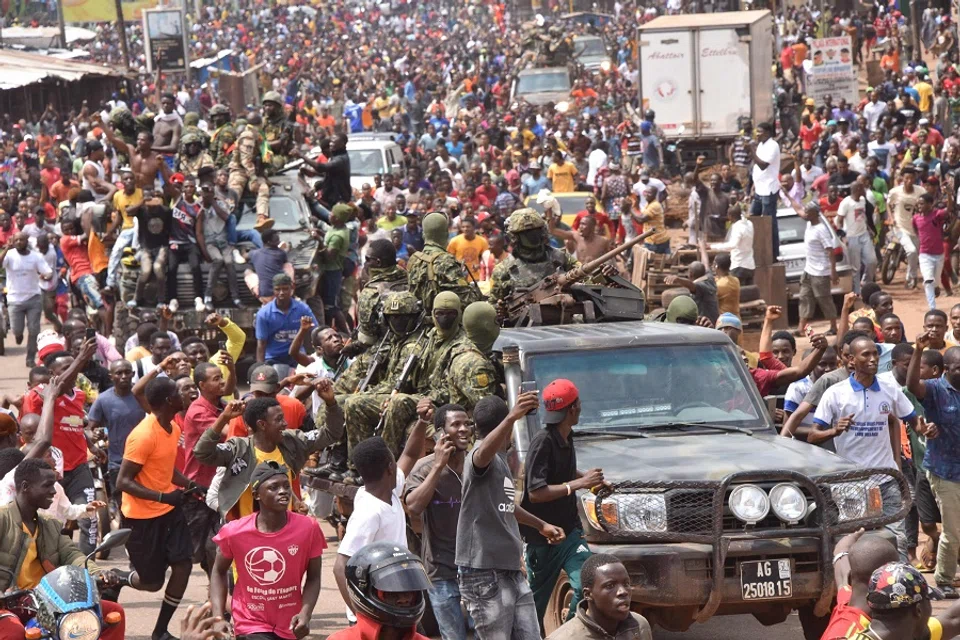
A military coup took place in the West African country of Guinea on 5 September local time. Numerous international organisations and countries have condemned the coup. China, which has always declared non-interference in other countries' internal affairs, did so too. Furthermore, in a rare move, China opposed the coup and called for an immediate release of President Alpha Conde, who has been placed under house arrest.
Some analysts think that a key reason for China's strong stance on the coup is because China has an interest in Guinea's bauxite mining industry. The fall of Conde, who has been friendly to China, may bring some uncertainties to China's cosy relationship with Guinea.
Major changes in Guinea
Reuters reported that gunfire erupted near the presidential palace in the capital of Conakry on 5 September. Soldiers and military vehicles patrolled the streets. A military source added that some areas were sealed off, and heavily armed soldiers were deployed around the presidential palace.
Next, Lieutenant-Colonel Mamady Doumbouya, head of Guinea's elite army unit, said on state television that they had dissolved the government and constitution, and also ousted Conde. Land and air borders would also be closed for a week.
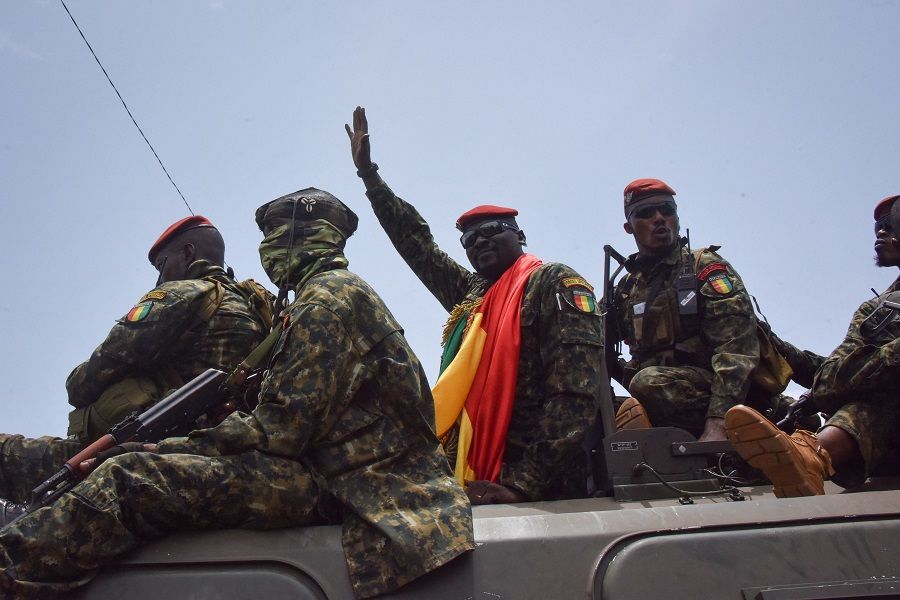
Doumbouya further announced the establishment of the National Committee for Reconciliation and Development to ensure an "inclusive, peaceful transition". He claimed that "poverty and endemic corruption" had driven his forces to stage the coup.
Their actions, all taken in 24 hours, drew condemnation from organisations and countries including the African Union, the Economic Community of West African States, the United Nations, the US, France and so on.
At a press conference on 6 September, Chinese foreign ministry spokesperson Wang Wenbin said, "We are closely monitoring the situation in Guinea. We noted relevant statements by the African Union (AU) and the Economic Community of West African States (ECOWAS). China opposes coup attempts to seize power and calls for the immediate release of President Alpha Conde."
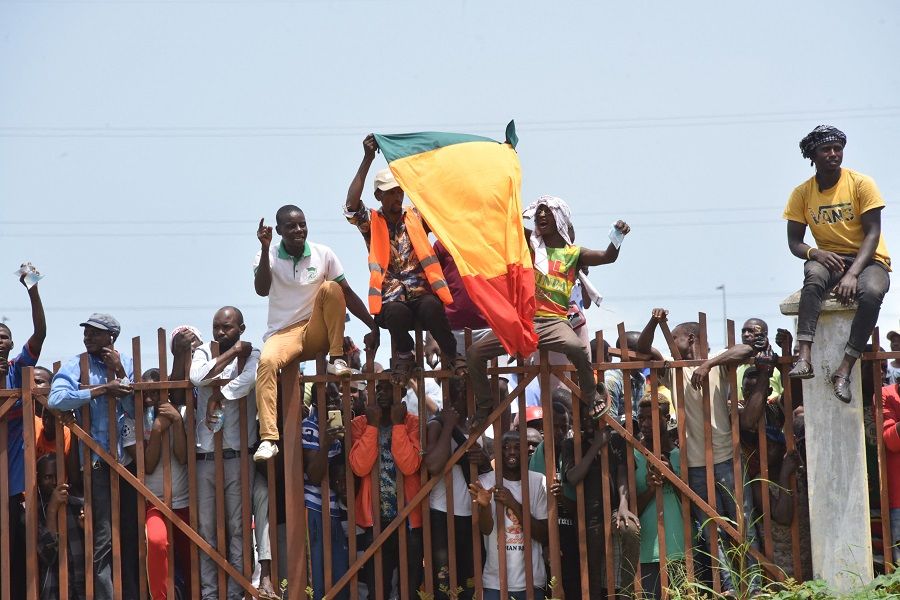
It is noteworthy that China expressed its clear opposition to the coup in Guinea and is even thought by some foreign media to have put forth a tough stance. This marks a departure from Beijing's previous measured stance on coups in other countries, as China has always adhered to the principle of non-interference in other countries' internal affairs.
How Beijing has reacted in the past
During Thailand's military coup in May 2014 when army chief General Prayuth Chan-ocha forcibly took control of the government, China's foreign ministry said, "We hope that all sides can exercise restraint, step up dialogue and consultation and restore order to their country as soon as possible."
In 2017 when Zimbabwe President Robert Mugabe was detained by the military, China's foreign ministry said, "We hope that Zimbabwe could properly handle its internal affairs."
In April 2019 when a coup occurred in Sudan, Beijing still upheld the principle of non-interference in other countries' internal affairs. It said, "We believe that the Sudanese side is capable of managing its own internal affairs and ensuring its national peace and stability."
China's foreign ministry also gave a similar response last month when the Taliban took over Afghanistan. Spokesperson Hua Chunying said at a press conference on 16 August, "We respect the will and choice of the Afghan people." Spokesperson Zhao Lijian then said on 18 August, "China hopes that all parties in Afghanistan would resolve differences through dialogue and consultation, avert new conflicts and humanitarian disasters, and work toward a smooth transition in the Afghan situation."
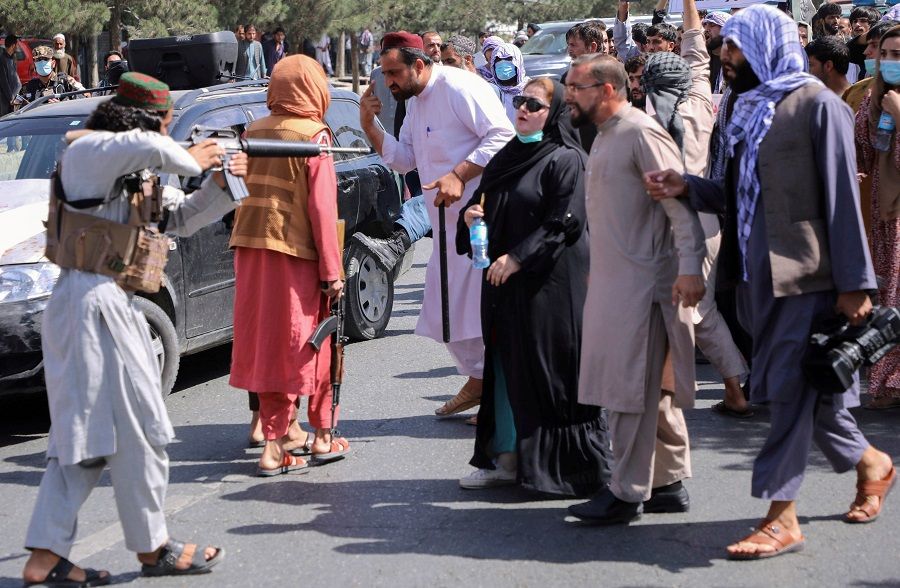
Observably, China has often maintained a measured stance towards the coups in other countries in the past. It used the words "hope", "believe", and "respect" to express its neutral stance and chose not to be involved in these disputes.
What's different about the coup in Guinea then?
China's chain of interests in Guinea
Guinea is the world's second-largest producer of bauxite, and exports the most amount of bauxite to China. Analysts think that the main reason for China's clear stance against the coup in Guinea is because the coup would lead to uncertainty in the global aluminium supply chain, which would pose supply chain risks for China's aluminium industry.
According to a Bloomberg report, Guinea has become a key producer of bauxite, and almost all its exports serve China's vast aluminium industry. As such, the coup could bring about industry disruptions and force aluminium prices to rise.
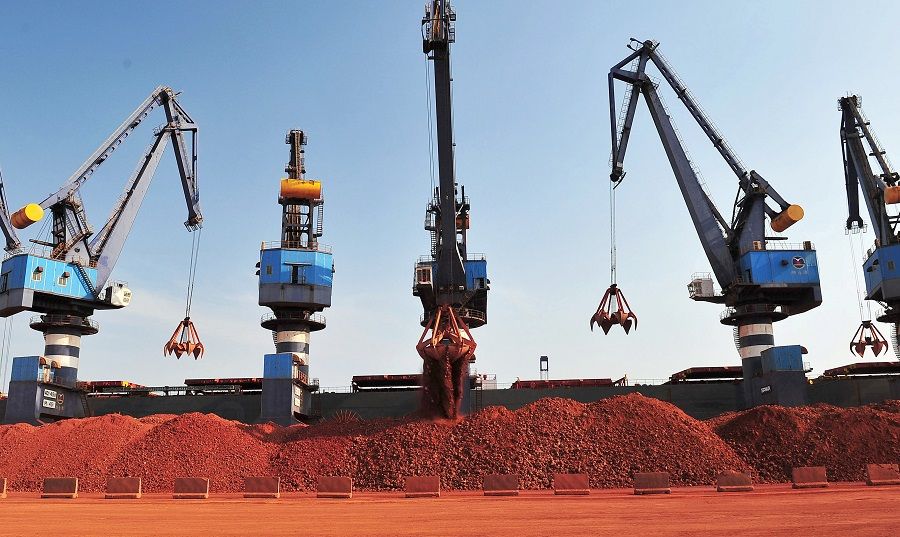
On 9 September, the price of aluminium on the London Metal Exchange went up by 1.6% to US$2,837.50 (S$3,812) per metric ton, the highest since 2008, before trading at US$2,829 as of 12:48 pm Shanghai time; the same day, aluminium prices on the Shanghai Futures Exchange went up by 2.1% to the highest since 2006.
According to reports, bauxite trade is highly concentrated, with Guinea, Australia, and Indonesia providing 99% of China's purchases. China's relations with Australia are cool at the moment, which means that if Guinea's exports are halted, China has few immediate alternatives.
AFP also reported that after Conde took office on 7 November 2010, economic cooperation between China and Guinea has been close. China - making great strides on its New Silk Road - has found common cause with a Guinea that is currently seeking infrastructure development. Guinea has large and widespread reserves of many types of ores, with large mining potential. Over the past decade, China has increased its investments in Guinea.
In 2019, China won the mining rights for the world's largest ore reserves in Guinea's Simandou mines. Extractions spread over four zones, with China companies holding majority rights.
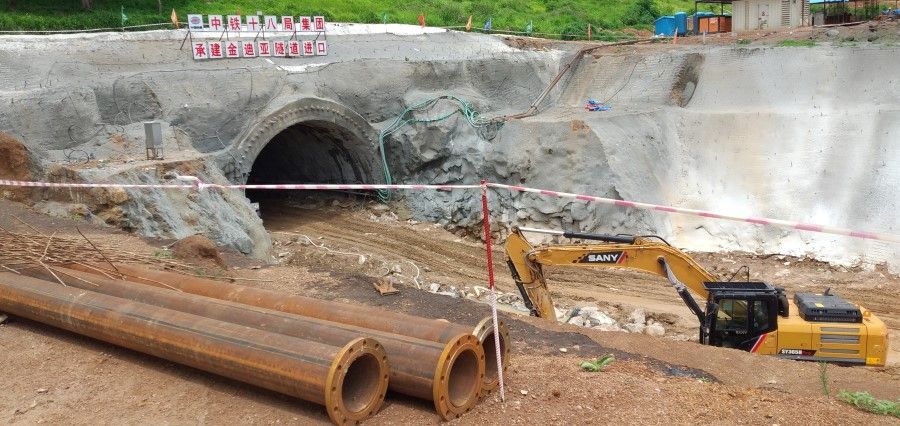
Furthermore, the bauxite mining project in the Boke region in northern Guinea provides over half of China's total bauxite imports.
AFP quoted Lauren Johnston, a research associate with the China Institute at the School of Oriental and African Studies in London University, who said that Beijing has always sought to maintain the best relations with Conde, increasing investments and not hesitating to congratulate him on his re-election in October 2020. Now that Conde is out of office, China has lost an important ally in Guinea.
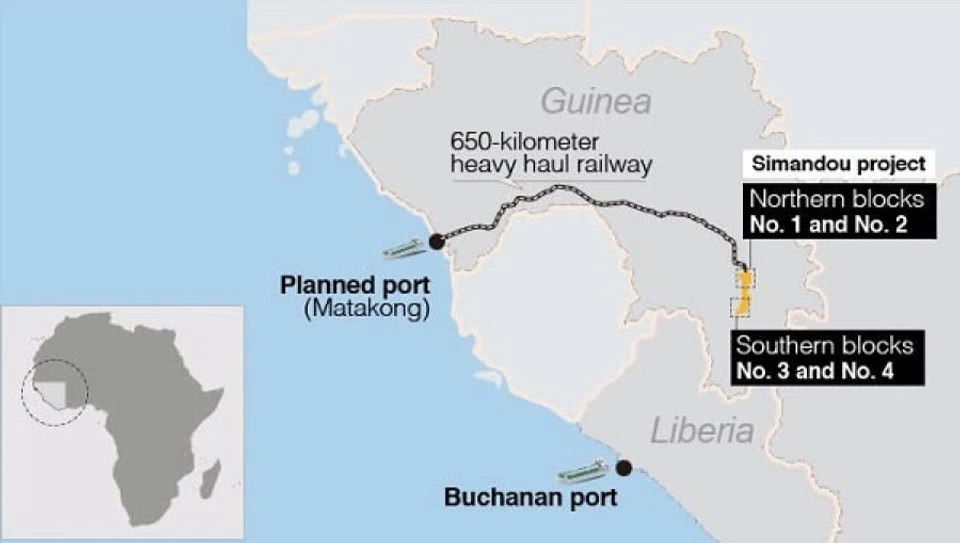
On the other hand, coup leader Doumbouya has reassured business partners and foreign investors on 6 September. In one of his first declarations after the takeover, he said that Guinea will "uphold all its undertakings [and] mining agreements" and "maritime borders will remain open for export activities".
Doumbouya also invited Chinese ambassador to Guinea Huang Wei for a meeting on 8 September. It was reported by Global Times that "Huang called for joint efforts to create a peaceful and stable development environment and urged Guinea to ensure the safety of Chinese personnel, institutions and projects in the country". At the same time, Doumbouya "spoke highly of the historical Guinea-China friendly and cooperative relations" and promised that the regime would "ensure compliance with all bilateral and multilateral commitments and agreements". He also hoped that "Chinese partners in Guinea [would] maintain normal production and operation".
The foreign policy of Guinea's new political office holders is not yet fully known. However, Bob Adam, an expert in Guinea's bauxite industry, told Voice of America (VOA) Chinese that political change is unlikely to have a major short-term impact on exports, and any new government will make sure not to hurt future profits and investments.
Does China have to state its position because of its higher international standing?
Another analysis held that as the world's second largest economy and a permanent member of the United Nations Security Council, it is increasingly difficult for China to distance itself from international issues.
China's foreign policy of not interfering with other countries' domestic politics dates back to former Premier Zhou Enlai and the Five Principles of Peaceful Coexistence raised at the Asian-African Conference, or Bandung Conference, in 1955: mutual respect for each other's territorial integrity and sovereignty, mutual non-aggression; mutual non-interference in each other's internal affairs; equality and mutual benefit; and peaceful co-existence.
These five principles - in particular not interfering in other countries' internal affairs - help to prevent China from becoming involved in too many international affairs and biting off more than it can chew, so that China avoids becoming an opponent of the US and other developed countries and can keep focusing its energies on developing its economy.
...with China becoming the world's second largest economy and its growing political and diplomatic influence, it is getting more difficult for Beijing to continue keeping a low profile amid difficult diplomatic issues and avoid sticky problems.
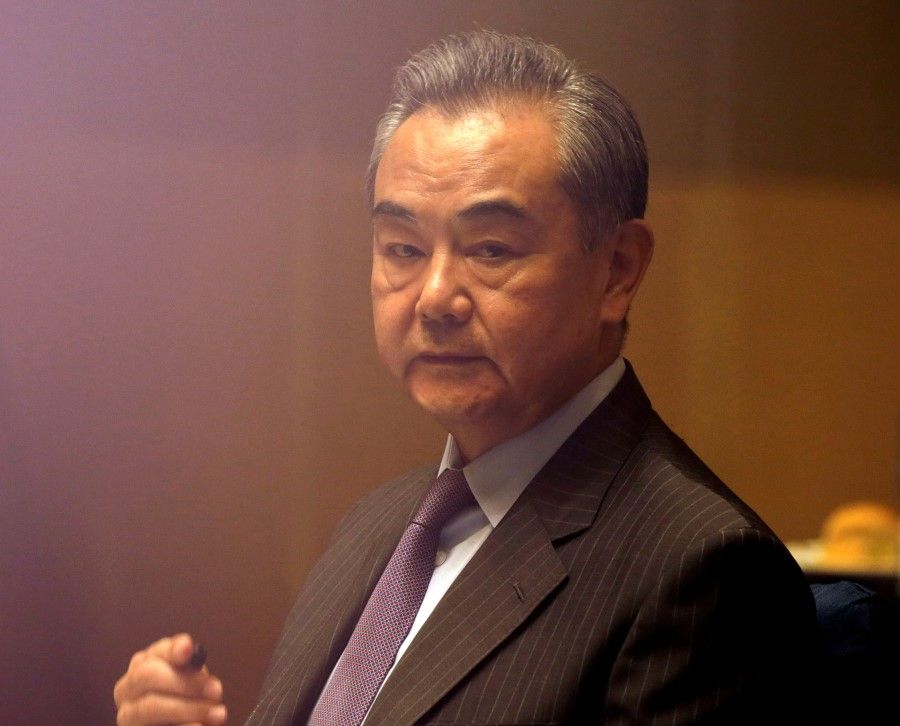
On 6 August, at the meeting of foreign ministers at the 28th ASEAN Regional Forum, Chinese State Councilor and Foreign Minister Wang Yi said non-interference in other countries' internal affairs helps developing countries safeguard their sovereign independence and legitimate rights. He stressed: "All countries are equal and can strengthen exchanges and enhance understanding in the spirit of mutual respect, but they should not impose their likes and dislikes on others, and they should not wantonly meddle in the internal affairs of other countries or even seek their selfish geopolitical agenda under the guise of democracy and human rights."
However, with China becoming the world's second largest economy and its growing political and diplomatic influence, it is getting more difficult for Beijing to continue keeping a low profile amid difficult diplomatic issues and avoid sticky problems. The interests involved are complex, and objecting to the coup in Guinea might be an example of Beijing having to clarify its stand to protect the security and interests of its people and businesses.
Many international organisations have objected to the coup in Guinea, and some analyses have it that China might be more actively involved in global affairs in future.
Related: Chinese academic: Will China play the rare earth card against the US? | How to break China's monopoly on rare earths | What China wants to see under a Taliban-led Afghanistan | The future of China-Afghanistan relations: Lessons from history | Why Chinese local governments indulge in wasteful infrastructure projects | Can Biden's new infrastructure plan rival China's BRI? | China-Iran deal complements the BRI, but faces Iranian domestic opposition and US sanctions
